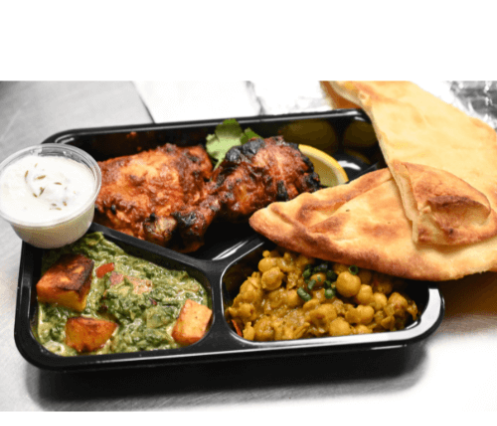Meals on Wheels Pilot Offers Culturally Appropriate Meals

VON has co-designed a new, expanded Meals on Wheels (MOW) program in Mississauga, Ontario, with the engagement and input of partner organizations and community members. The pilot MOW program will include stronger community outreach, enhanced program awareness and increased access to culturally appropriate meal options.
The culturally and linguistically diverse community of Mississauga is home to many seniors, newcomers and refugees. Data from Ontario Health shows that more than half (57 percent) of the region’s residents are visible minorities.
VON set out to better serve the population by engaging the community, listening to their feedback and identifying gaps in service. The strategy aligns with VON’s focus on people-centred care, as well as Ontario Health’s priority to reduce health inequities for underserved communities.
“We wanted to ensure we addressed the needs of the community as they related to food preferences,” says Arshia Ali, Director, Client and Family Engagement.
The VON team, including Arshia Ali (Director, Client and Family Engagement), Danielle Todd (Senior Manager, Home and Community Care, Central Ontario), Kim Aliry (Manager, Home and Community Care, Peel site) and Anne-Marie Aidoo (Program Coordinator, Peel MOW), met with representatives from partner organizations including Dixie Bloor Neighbourhood Centre, ICNA Relief Canada, Punjabi Community Health Services, Yee Hong and Nucleus Independent Living.
The participants identified factors including:
● limited community awareness of current meal programs available in the region
● community interest in access to culturally appropriate meals
● barriers within communities with lower socio-economic status, including cost and language
The typical MOW program operates on a “meal of the day” model, with one hot meal available daily, accommodating dietary restrictions and protein preferences. Clients don’t know what meal is coming on any given day and they are not able to access culturally appropriate hot meals at their desired frequency. (There is more flexibility to choose frozen meal options.)
Through discussions with community members, the team found that some potential clients wanted greater choice and more frequent culturally appropriate meals.
“Food is an essential for life,” says Danielle. “There is research that demonstrates that elderly patients who go into hospital malnourished have worse outcomes than those who are appropriately nourished. From a health equity stand-point we need to have culturally sensitive options.”
Community members also suggested that the program be marketed through posters and brochures, in places potential clients might be found–community programs and doctors’ offices, for example. The marketing materials must also be in appropriate languages.
Based on community feedback, VON submitted a report to Ontario Health and was invited to submit a proposal (now accepted) for a two-year pilot project–one year for engagement and co-design and one for implementation of the pilot.
Ultimately, the meal of the day option will be expanded to include five daily cuisine options: Western, South Asian, Middle Eastern, Chinese and Caribbean. South Asian and Middle Eastern meals will be available this summer, with Chinese to follow in the fall. Each of the five options will be available in Halal and non-Halal versions. Allergies and special diets (gluten-free, vegan, vegetarian, renal) will also be accommodated.
Posters and brochures will be available in Punjabi, Urdu, Arabic, Chinese, English and French.


